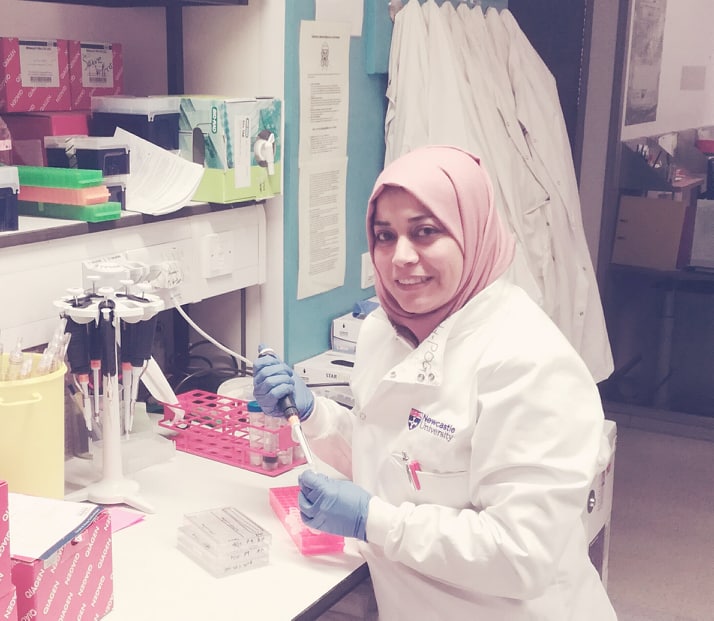Being a Ximbassador can provide you with a new career path,
a change of direction and open new horizons. We spoke to Asma Mohamed, our Ximbassador
at Newcastle University on her experiences and why she chose to be a Ximbassador:
“I’m doing a PhD at
Newcastle University, but before I found out about the Internship, I had never
heard of tech transfer before. I thought my only options after the PhD were to work
in industry or to do a Postdoc, but now I know there are more options. I
thoroughly enjoyed every bit of the internship and was very fortunate to do it.
I am starting to think about working in tech transfer as a future career.”

The Ximbassador Internship Programme is a 6-month,
part-time, paid Internship that runs alongside your PhD or Postdoc position.
This can have its advantages according to Asma:
“I’m an international student, so it can be hard to find internships or work that fits in with my visa conditions. This internship was great, as it was only 5 hours a week and there was a lot of flexibility. It’s an internship that can be done from anywhere, so I was able to fit it around my life and studies and to set my working times to a schedule that suited me.”
The role of the Ximbassador is to discover life science reagents on campus, by liaising with researchers and Principal Investigators (PIs) in the university’s laboratories. This means you can meet a lot of researchers from different life sciences research areas, bringing both advantages and challenges:
“I found the networking the best thing about being a Ximbassador. Previously I was just in a lab talking to the same people, but the Ximbassador role has made me go around campus and visit different life sciences centres that I wouldn’t have gone to otherwise. It was interesting discovering fields related to what you’re working on and seeing the interesting things going on in other labs. It can be challenging though. For example, if you’ve found a reference to a life sciences research tool in a paper and then the researcher who has invented it doesn’t remember what they did, it can be quite frustrating! I spoke to a member of Ximbio every other week though, and they were always there to help, which was useful.”
Finding life sciences reagents on campus can involve a variety of different techniques and tactics. Being a Ximbassador, therefore provides you with the opportunity to learn a lot of new skills:
“You really learn a lot on this Internship, especially good communication skills. You need to be persistent and attend local events, conferences and seminars, rather than just sending emails and waiting for people to reply. You could send out 60 emails and have just 2 responses. Presenting and having a presence at these events encourages you to develop your marketing and presentation skills. I also learnt a lot about the tech transfer industry and the link between academia and industry.” The Ximbassador Programme is set up through a collaboration between Ximbio and the University. The University is instrumental in advertising and recruiting students to become a Ximbassador: “I found out about the internship, through an email that was sent out to PhD students at the School of Medicine. I spoke to my PI about wanting to become a Ximbassador and he had a few concerns. He wanted to know how many hours a day the Internship was and how long it would be, as he was worried it would be a distraction from what I was doing and could affect my visa. He was reassured when I told him it was an hour a day and was very flexible. I’ve not had any comments from him about the internship since becoming a Ximbassador, as it hasn’t affected my day-to-day role.” Thanks to the internship, Asma is planning a future in the technology transfer industry: “Being a Ximbassador opened my horizons to a new world, and I really enjoyed it. If I hadn’t been in the Ximbassador programme, I wouldn’t have thought of tech transfer as a career option. I learnt a lot about what is involved in the process of linking academia to industry – it’s really a win-win for everyone involved. Since the internship I’ve been applying for technology transfer office roles and am definitely considering a career in the industry. I would highly encourage anyone to consider becoming a Ximbassador – it’s a win-win situation as you are paid to experience the tech transfer industry and you gain an advantage for your future career.” Discover more information about the Ximbassador Programme and discover how you could become a Ximbassador at your university 
